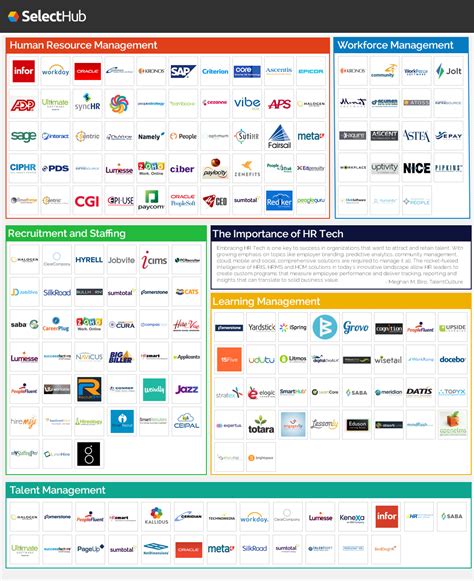The HR tech landscape is constantly evolving, with new innovations and solutions emerging every day. As an HR professional, it can be overwhelming to navigate this complex landscape and identify the tools that can truly make a difference in your organization. In this article, we'll explore five essential tools that can help you streamline your HR processes, improve employee engagement, and drive business success.

The Importance of HR Tech
Before we dive into the essential tools, let's talk about why HR tech is so important. In today's fast-paced business environment, HR teams are expected to do more with less. They need to manage complex processes, ensure compliance, and provide exceptional employee experiences – all while keeping costs under control. HR tech can help by automating manual tasks, providing data-driven insights, and enhancing employee engagement.
1. HR Information Systems (HRIS)
An HRIS is a centralized platform that stores and manages employee data, including personal details, job history, benefits, and performance records. It's the foundation of any HR tech stack, providing a single source of truth for all employee-related information.

Benefits of HRIS:
- Improved data accuracy and compliance
- Streamlined employee onboarding and offboarding
- Enhanced reporting and analytics
- Better decision-making with data-driven insights
2. Performance Management Software
Performance management software helps you manage employee performance, goals, and development. It provides a framework for regular check-ins, feedback, and coaching, enabling employees to grow and develop in their roles.

Benefits of Performance Management Software:
- Improved employee engagement and motivation
- Enhanced performance and productivity
- Better alignment of individual goals with business objectives
- Data-driven insights for informed decision-making
3. Time and Attendance Software
Time and attendance software helps you manage employee work hours, attendance, and leave. It automates time-tracking, reduces errors, and provides real-time insights into workforce productivity.

Benefits of Time and Attendance Software:
- Improved accuracy and reduced errors
- Enhanced workforce productivity and efficiency
- Better compliance with labor laws and regulations
- Data-driven insights for informed decision-making
4. Learning Management Systems (LMS)
An LMS is a platform that delivers and manages employee training and development programs. It provides a centralized repository of learning content, enables personalized learning pathways, and tracks employee progress.

Benefits of LMS:
- Improved employee knowledge and skills
- Enhanced employee engagement and retention
- Better compliance with regulatory requirements
- Data-driven insights for informed decision-making
5. Employee Engagement Platforms
Employee engagement platforms help you measure and improve employee engagement, sentiment, and experience. They provide a range of tools and analytics to help you understand your employees' needs, preferences, and concerns.

Benefits of Employee Engagement Platforms:
- Improved employee engagement and motivation
- Enhanced employee retention and reduced turnover
- Better understanding of employee needs and preferences
- Data-driven insights for informed decision-making
Conclusion
Navigating the HR tech landscape can be complex, but by focusing on these five essential tools, you can streamline your HR processes, improve employee engagement, and drive business success. Remember to assess your organization's specific needs, evaluate different vendors, and choose solutions that align with your business goals and objectives.
Gallery of HR Tech Tools






What is HR tech?
+HR tech refers to the use of technology to manage and optimize HR processes, including recruitment, onboarding, performance management, and employee engagement.
Why is HR tech important?
+HR tech is important because it helps HR teams streamline processes, improve employee experiences, and make data-driven decisions. It also enables organizations to stay competitive in a rapidly changing business environment.
What are some common HR tech tools?
+Some common HR tech tools include HRIS, performance management software, time and attendance software, learning management systems, and employee engagement platforms.
